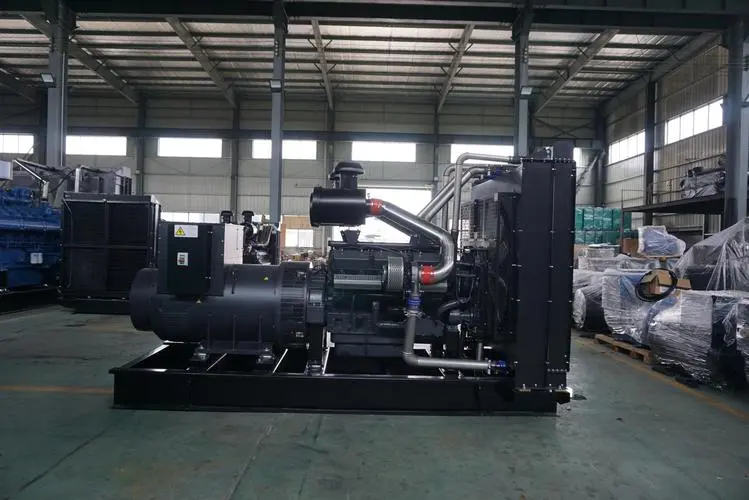Introduction
Diesel generators have long been a popular choice for providing backup power in various applications due to their reliability, efficiency, and cost-effectiveness. However, the environmental impact of diesel generators has been a growing concern in recent years, leading to stricter regulations and standards to reduce emissions and mitigate their effects on air quality and public health. In this article, we will explore the environmental standards that govern diesel generators, the technologies available to reduce their environmental impact, and the importance of compliance with these regulations.
Environmental Impact of Diesel Generators
Diesel generators are widely used in a variety of settings, including industrial facilities, commercial buildings, hospitals, and residential homes, to provide backup power during outages or as a primary power source in remote locations. While diesel generators offer several advantages, such as high efficiency, durability, and reliability, they also have a significant environmental impact, primarily due to the emissions they produce.
The combustion of diesel fuel in generators releases a variety of pollutants into the atmosphere, including nitrogen oxides (NOx), particulate matter (PM), carbon monoxide (CO), and volatile organic compounds (VOCs). These pollutants have been linked to a range of environmental and health problems, such as smog formation, acid rain, respiratory illnesses, and cardiovascular diseases. In addition, diesel exhaust contains toxic compounds, such as benzene and formaldehyde, which are known carcinogens.
In https://www.lkpowerplant.com/product/quick-delivery-emergency-standby-power-400kw-silent-type-diesel-generator-set-for-peru/ and industrial settings with a high concentration of diesel generators, the cumulative impact of emissions from multiple sources can exacerbate air quality issues and contribute to environmental degradation. This has prompted governments and regulatory agencies around the world to implement stricter standards and regulations to limit emissions from diesel generators and improve air quality.
Environmental Standards for Diesel Generators
In response to the environmental concerns associated with diesel generators, governments and regulatory bodies have developed a set of standards and regulations to limit emissions and improve environmental performance. These standards typically focus on reducing the emissions of NOx, PM, CO, and other pollutants through the use of emission control technologies and operational practices.
One of the most widely recognized environmental standards for diesel generators is the United States Environmental Protection Agency (EPA) Tier 4 standard, which sets stringent limits on emissions of NOx and PM for new diesel engines. Tier 4 compliance requires the use of advanced emission control technologies, such as selective catalytic reduction (SCR) and diesel particulate filters (DPF), to reduce emissions to a minimum level.
In addition to the EPA Tier 4 standard, other countries and regions have implemented their own regulations for diesel generators. For example, the European Union has adopted the Stage V emission standard, which is similar to the EPA Tier 4 standard in terms of emissions limits and requirements for emission control technologies. Countries like India and China have also introduced regulations to limit emissions from diesel generators and improve air quality in urban areas.
Importance of Compliance with Environmental Standards
Compliance with environmental standards for diesel generators is essential to protect the environment, public health, and regulatory compliance. Failure to meet these standards can result in fines, penalties, and legal action, as well as reputational damage for businesses and organizations that operate diesel generators.
By complying with environmental standards, diesel generator owners and operators can reduce their environmental footprint, improve air quality in their communities, and demonstrate their commitment to sustainability and corporate responsibility. In addition, using clean and efficient diesel generators can help businesses and organizations reduce their operating costs, enhance their energy resilience, and comply with local regulations and permitting requirements.
Technologies to Reduce Environmental Impact
To meet environmental standards and reduce the environmental impact of diesel generators, a variety of technologies and strategies are available to control emissions and improve efficiency. Some of the most common technologies used to reduce emissions from diesel generators include:
1. Selective Catalytic Reduction (SCR): SCR is a post-combustion emission control technology that uses a catalyst to convert NOx into nitrogen and water vapor. By installing an SCR system on a diesel generator, owners can significantly reduce NOx emissions and comply with stringent emission standards.
2. Diesel Particulate Filters (DPF): DPF is a filtration device that captures and removes particulate matter from the exhaust stream of a diesel engine. By trapping PM emissions, DPFs help reduce the harmful effects of diesel exhaust on air quality and public health.

3. Exhaust Gas Recirculation (EGR): EGR is a technology that recirculates a portion of exhaust gas back into the engine's intake system to reduce combustion temperatures and lower NOx emissions. By implementing EGR systems, diesel generator owners can achieve compliance with emission standards while maintaining engine performance.
4. Fuel Additives: Fuel additives, such as biodiesel and urea-based solutions, can be used to improve the combustion efficiency of diesel fuel and reduce emissions of NOx and PM. By using cleaner-burning fuels and additives, diesel generator operators can minimize their environmental impact and enhance the sustainability of their operations.
Conclusion
Diesel generators play a critical role in providing backup power and electricity in various applications, but their environmental impact has raised concerns about air quality and public health. To address these concerns, governments and regulatory bodies have established stringent standards and regulations to limit emissions from diesel generators and improve their environmental performance.
By complying with environmental standards and adopting emission control technologies, diesel generator owners and operators can reduce their environmental footprint, protect air quality, and demonstrate their commitment to sustainability. Technologies such as SCR, DPF, EGR, and fuel additives offer effective solutions to control emissions and improve the efficiency of diesel generators, helping businesses and organizations meet regulatory requirements and contribute to a cleaner and healthier environment.
In conclusion, diesel generators can continue to be a reliable and efficient power source while meeting the highest environmental standards, ensuring a sustainable and responsible approach to power generation for the future.
